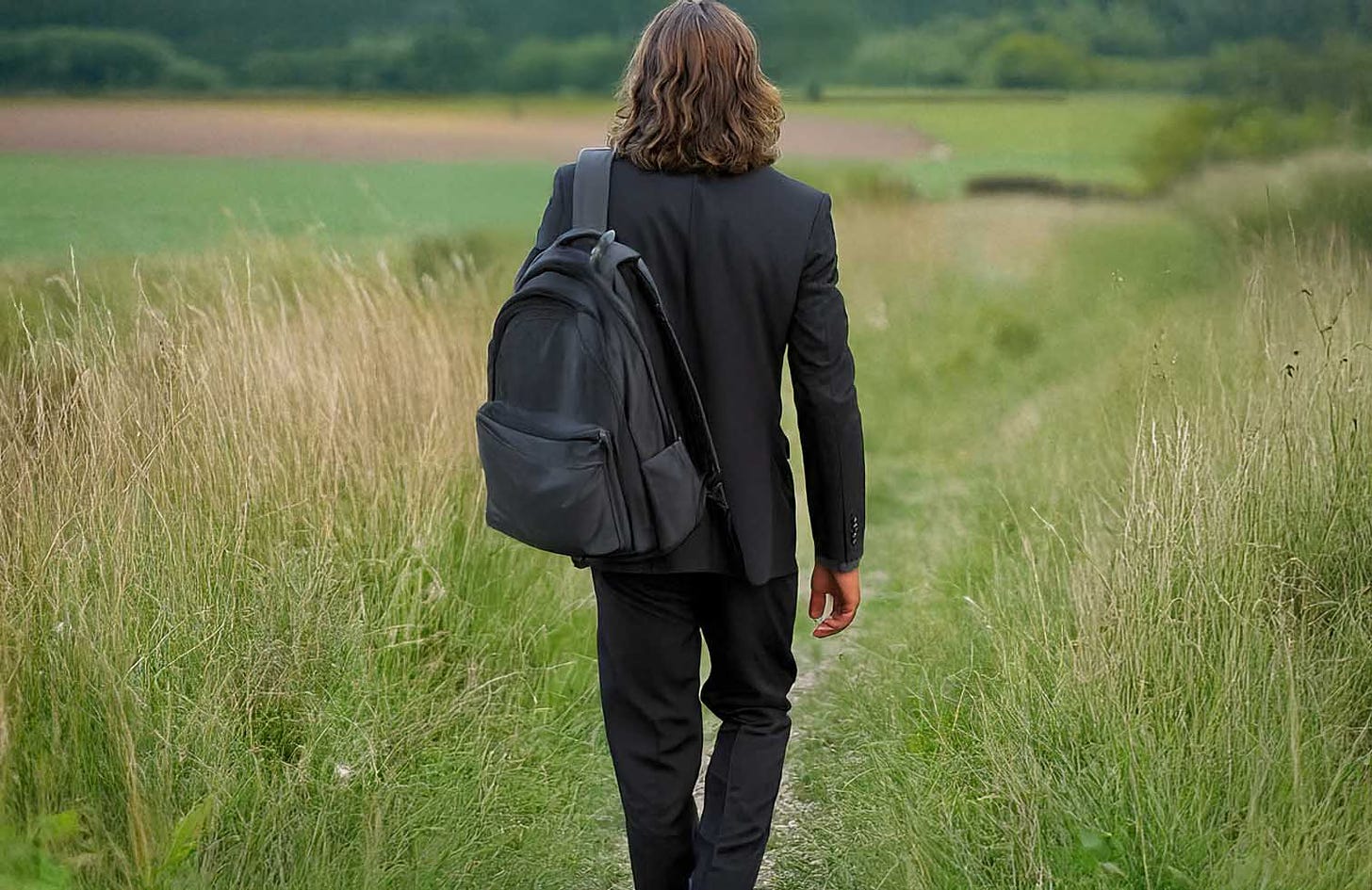Why I Used to Skip School Every Day
A podcast episode has helped me finally understand why I used to skip class every day and go exploring instead.
In my final two years of high school, I frequently skipped class and disappeared from school, sometimes for whole days. As a result, my grades tanked and I came close to being kicked out of school several times. A friend even wrote on my Facebook profile,“Going to class: You’re doing it wrong.”
Sixteen years later, a podcast episode has finally helped me understand why I felt I had to do it—an answer that also explains why many people grow up without developing the skill of independent thinking.
On a recent episode of Hannah Frankman’s education-themed podcast, she perfectly encapsulated the difficulties I had with school life that made escape the only way for me to hold on to some level of sanity and have a chance at identifying and pursuing my own values:
If your child is in a classroom from 8am to 3pm and then they leave the classroom and they get on a bus and go home in a bus full of other kids, they’re around other stimulation the entire time. They have no time to think for themselves—to do stuff on their own. They’re so busy with other people’s inputs and other people’s expectations of them, they never have a chance to discover what it is that they would do if they were in charge of their time and if they weren’t making decisions based on the approval or disapproval of their social networks.
For me, the ten-minute walk to the bus stop was the only time I had fully to myself during the week. School was a daily tidal wave of emotional challenges as I struggled to get to grips with forming relationships, learning social dynamics (which were practically a foreign language to me), and applying myself to lessons that either didn’t interest me or that were ruined by over-analysis and dry presentation of subjects I otherwise enjoyed. That left no spare mental capacity for answering my many questions about life and society that school never even addressed in class. The whole experience was an overwhelming cacophony, and the only way I could achieve clarity about any of it was to get out of there and be alone.
So I snuck out and went exploring around the town. On those walks, I could finally think hard about why I liked the things and people that I liked, about why I stood for the values I held, and what I might do with my future. This introspection was vital for forming my sense of self, and it’s something many adults I know today have simply never done. Many people never think to ask why they believe what they believe or why they like the things they like. They swim through life unfocused and unconscious, and Hannah’s description of school life finally helped me see that their inability to find peace and solitude as children in public school is probably a major reason for that lack of clarity.
If we want to move toward a world in which more people use their minds to think critically about their values—a world in which people choose and pursue rational goals—then we must advocate for an end to the traditional model of schooling. Forcing children into prison-like environments in which they’re beholden to irrational rules—the irrationality of which many rightly identify and protest against, only to be shut down in another crushing blow to their nascent confidence in their own minds—only serves to impede their ability to develop independent thinking and choose their own values. Instead, all too often, kids get their ideas by second-hand inheritance, be it from the school or from their peers. No wonder we have such a conformist society today.
I strongly recommend following Hannah’s podcast for more insights into how traditional public schooling destroys children’s minds. You can find her episodes on YouTube and Spotify. Perhaps they’ll bring you clarity about your development as they have for me.





This is a great post, Tom and reminds me a lot of my school experience. After a long school day, I’d go home, finish my homework as fast as possible, and start playing video games. Video games, I later realized, were my only form of thinking and making choices on my own.
In retrospect, I realize that many of the worst habits I’ve had to break stem from being conditioned to do what everyone else is doing. I think video games—and social isolation—helped me retain more of my independence than others.